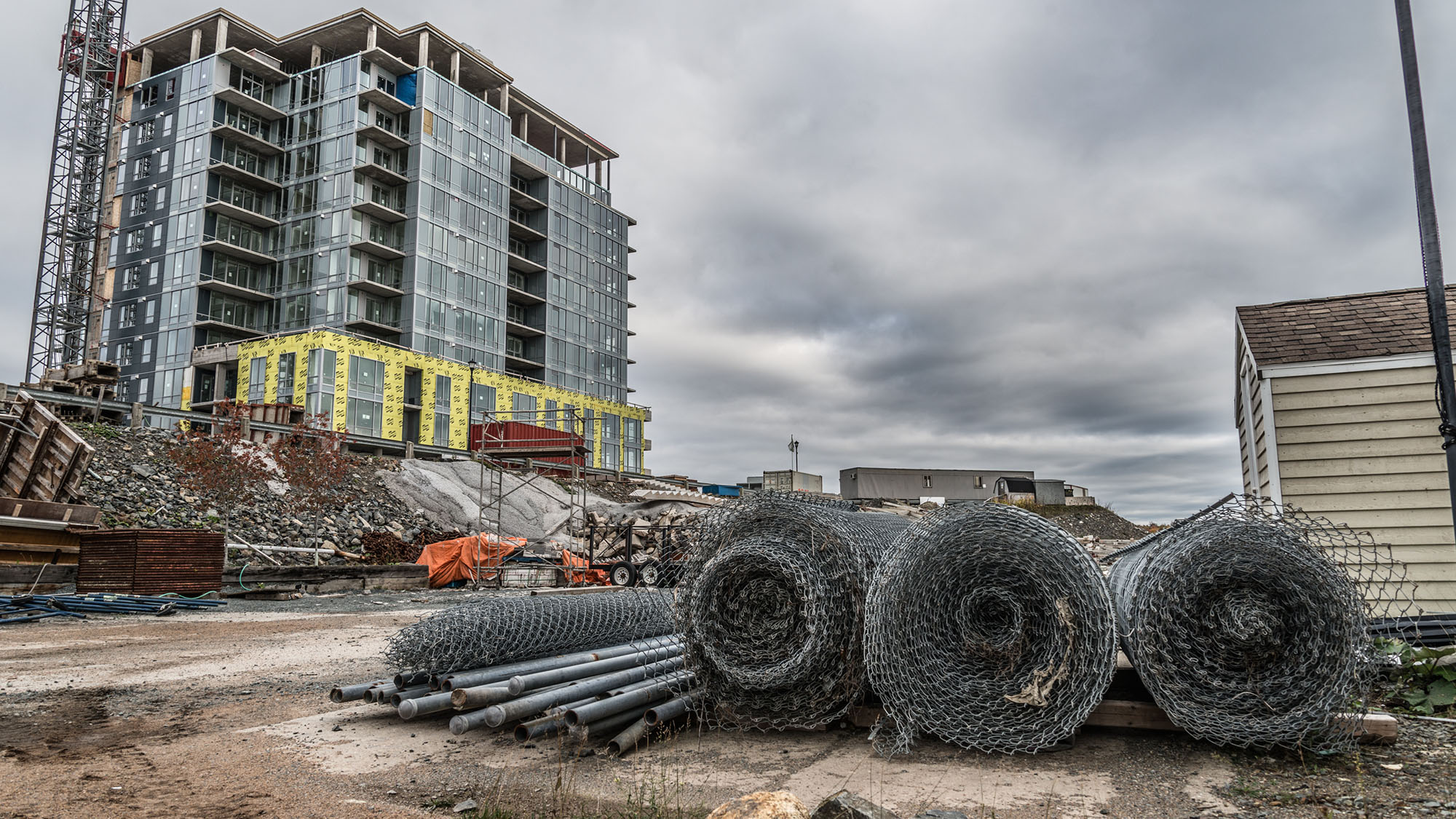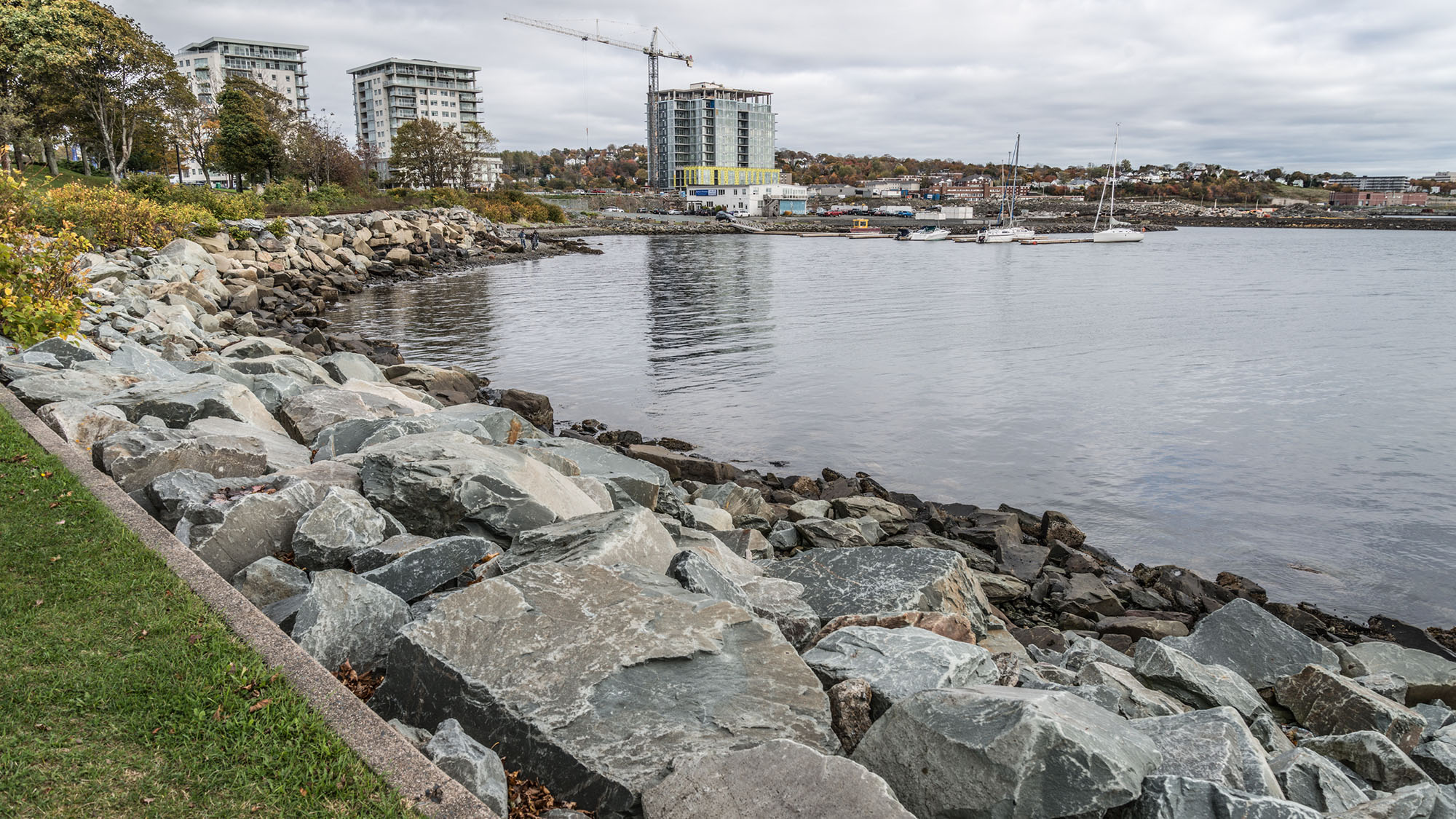Building smart beside the sea

caption
Francis Fares’s real estate company was well aware of the risks associated with sea level rise and planned accordingly.Some developers are already making those intelligent choices. John Charles points to King’s Wharf – a set of condo towers built and being built on the Dartmouth waterfront – as a poster child for building with sea level rise in mind.
Francis Fares, head of Fares Real Estate Inc. and the developer behind the towers, says that, despite the added costs and complications, every precaution is worthwhile when investing in a coastal property.
“When we planned this development, we took into consideration from day one rising sea levels, global warming, tsunamis and all those things,” says Fares.
“We established our base for this whole development at about 1.8 metres above the high-water mark … The lowest parking level would be at that level,” Fares says.
Above that lowest point there is another level of parking and a ground floor of commercial space before you reach the lowest residential apartments.

caption
The real estate company was well aware of the risk associated with sea level rise and increased the minimum height of its buildings.This distance meets and exceeds the requirements set out by the city, which ensure residential spaces and vital infrastructure aren’t on the ground floor of coastline properties.
“If there is ever water to come in our building it means half of downtown Halifax is underwater,” says Fares.
Listen to Francis Fares:
https://youtu.be/GlWbKlcmSgE

